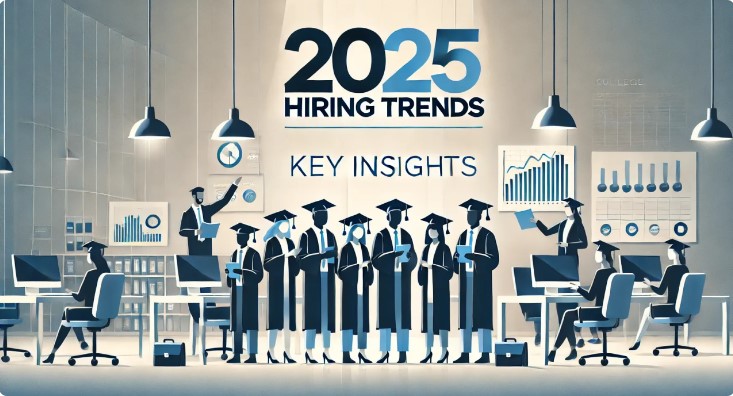
Recruiting college students in 2025 requires a strategic approach that aligns with the evolving preferences, behaviors, and expectations of young talent. Here are 10 key findings to consider:
College students are heavily influenced by digital platforms. They engage with companies through social media, LinkedIn, and job boards like Indeed, Glassdoor, and Handshake. Ensuring your organization has a strong, consistent presence on these platforms is essential to attracting attention and engaging candidates.
Students today prioritize flexibility. Offering remote work or hybrid opportunities is a significant draw. Many are looking for internships or entry-level positions that allow them to balance their personal life, studies, and work commitments, particularly as they enter the workforce.
College students want to feel like they’re growing and developing professionally. Highlight opportunities for mentorship, continuous learning, and career advancement. Offering clear pathways for growth, like rotations or skill-building programs, is highly appealing.
Virtual career fairs have become increasingly popular, especially post-pandemic. Using online platforms to connect with students, showcase your company culture, and hold Q&A sessions can expand your reach. On-campus recruiting events also remain valuable, particularly for specific industries or universities with strong programs in your field.
Students seek real-world experience that’s relevant to their academic pursuits. Offering paid internships that provide valuable work experience helps you attract top talent and enables students to avoid the financial burden of unpaid work.
Today's college students are more socially conscious and value companies that prioritize diversity, equity, and inclusion (DEI). Highlight your organization’s DEI initiatives, inclusive work environment, and commitment to creating a diverse workforce to appeal to a wider pool of candidates.
Students in 2025 want to work for companies with a strong social purpose. Emphasize your company’s values, commitment to social impact, sustainability, and corporate social responsibility (CSR) efforts. Students are more likely to align with employers whose missions align with their own values.
With a highly competitive job market, students expect more personalized recruiting processes. Use targeted email campaigns, personalized job recommendations, and engagement through social channels to make them feel valued. AI-driven chatbots can also facilitate tailored experiences for candidates.
While salary is important, students also want benefits that enhance work-life balance, such as wellness programs, mental health support, and student loan repayment assistance. Employers who offer holistic packages that address students' financial, physical, and mental well-being stand out in the recruiting process.
Mental health awareness is a top priority for students entering the workforce. Highlight your company’s approach to work-life balance, stress management, and overall employee well-being. Flexible work hours, time-off policies, and mental health support programs resonate deeply with this demographic.
By adapting to these findings, your organization can position itself as an attractive employer for college students in 2025, appealing to their desires for flexibility, growth, and purpose while remaining competitive in a crowded talent market.